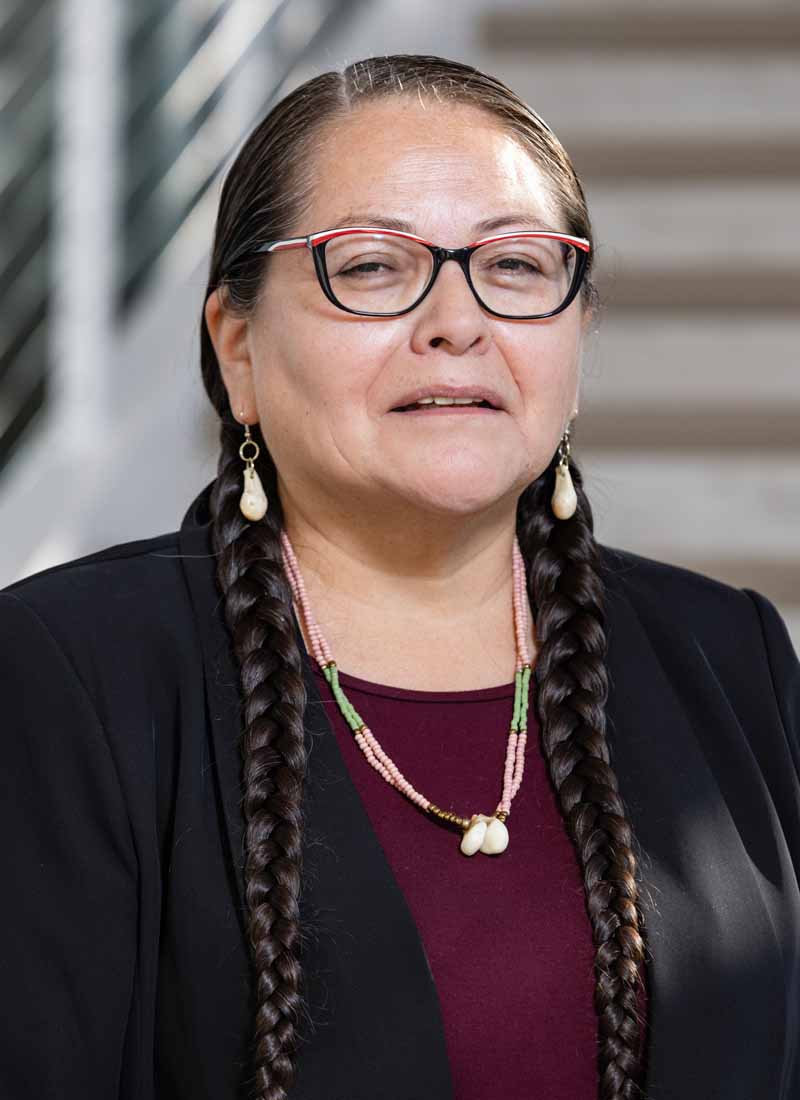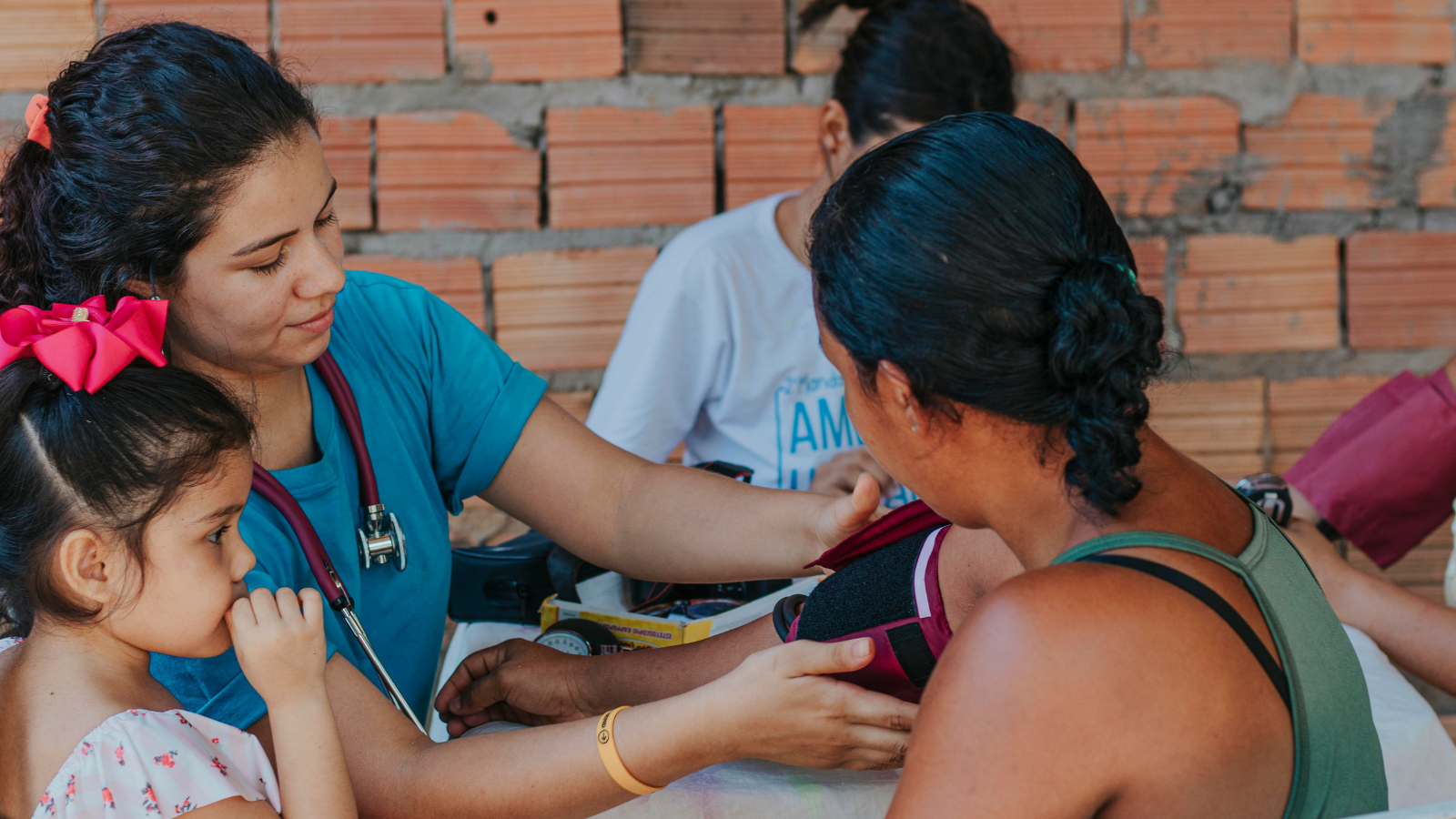Western countries have consistently excluded Indigenous nurses from nursing education and practice, both socially and politically.
The oversight has seriously contributed to health inequities in the community because Indigenous nurses are fundamental change agents.
The Journal of Clinical Nursing’s 2023 paper, “Indigenous social exclusion to inclusion: Case studies on Indigenous nursing leadership in four high income countries,” written by Dr. Teresa Brockie, Dr. Terryann Clark, and Dr. Odette Best, et. al. takes on this issue with perspectives from Australia, Canada, Aotearoa New Zealand, and the U.S. The paper calls for nurses to be allies in supporting policies and resources necessary to improve Indigenous health outcomes.
How Can the Nursing Profession be an Active Ally in Indigenous Health?
We need more Native nurses. Health promotion, cultural safety, and equitable care cannot be achieved without Native nurses at the forefront of nursing practice. With that grounding belief, Dr. Brockie, et. al. outline several culturally connected strategies proven to enhance the Native nursing workforce and ultimately improve Indigenous health.
Recruit and Retain Native Nurses with Culturally Appropriate Nursing Programs
New Zealand has found success with Māori-designed undergraduate nursing programs that both promote nurse leadership and activism. This program has helped recruit and retain more Māori nurses, which, in turn, helps heal the racism and immense service gaps within this community. Other programs target specific concerns. Mental health care is a significant treatment gap in the Indigenous community, and the Minority Fellowship Program in the U.S. is another successful pathway to further education and training on the subject.
Establish Care Available Outside of the Hospital System
Sister Dulcie Flower, a Torres Strait Islander registered nurse and midwife, pioneered the movement for Indigenous nurses and midwives to care for patients in the community, outside the western hospitals system in Australia. Her tireless work led to the establishment of over 140 Aboriginal Community Controlled Health Organizations, which provide culturally safe and responsive care for Indigenous Australian people.
Include Indigenous Nurses in Policy
The Canadian Institute of Health Research (CIHR), in collaboration with the Canadian Nurses Foundation and provincial health authorities, has helped to fund six Indigenous Health Chairs in Nursing, establishing the Canadian Indigenous Nurses Association. These Initiatives have helped address racism against Indigenous nurses while providing culturally safe care. They also bring traditional Indigenous practices to the forefront of health equity scholarship and an increased awareness of culturally safe care within the health care system. This knowledge has even spread to non-Indigenous allies.
Root Research Methods in Indigenous Knowledge and Practice
The Kaupapa Māori case study design looks at culturally responsive nursing practices and asks if these practices respond to or fail to meet Indigenous needs. This method highlights the critical lens of Indigenous methodologies when considering the many ways Indigenous nurses can contribute to systems of care and continue to grow the Indigenous nursing workforce. The prioritization of the Indigenous worldview and active examination of the impact of colonization on health outcomes makes this framework instrumental in achieving change.
From Harm to Healing
Nurses who are representative of their communities improve patient care, but the shortage is dire. In Canada, for example, Brockie et. al report that only three percent of approximately 440,000 registered nurses are Indigenous.
As the health care systems in the U.S., Canada, Australia, and Aotearoa New Zealand are inherently colonized, incorporating more Indigenous nurses into the workforce is imperative to move from harm to healing. As a result of this colonization, Indigenous peoples and Indigenous nurses who seek to holistically help their community have experienced racism in care and poor health outcomes for generations.
The nursing profession is grounded in social justice, activism, advocacy, and education. The profession has a responsibility to empower Indigenous nurses not only through leadership and training—but through the critical redistribution of power and resources to Indigenous nursing practice.
Indigenous social exclusion to inclusion: Case studies on Indigenous nursing leadership in four high income countries” was published in 2023 by the Journal of Clinical Nursing. It was written by Teresa Brockie, PhD, RN, FAAN, associate professor at the Johns Hopkins School of Nursing, Terryann Clark, PhD, MPH, RN, professor at the University of Auckland, and Odette Best, PhD, RN, Pro Vice-Chancellor (First Nations Education and Research) at the University of Southern Queensland, along with Tamara Power, PhD, RN, senior lecturer at the University of Sydney, Lisa Bourque Bearskin, PhD, RN, associate professor at the University of Victoria, Donna Kurtz, PhD, associate professor at the University of British Columbia, John Lowe, PhD, RN, FAAN, professor at the University of Texas at Austin, and Denise Wilson, PhD, professor at Auckland University of Technology.
Read More:
- Creating Inclusive Academic Spaces: The Role of Indigenous Allies
- Public Health Nurses – The Cornerstones of Indian Country
- The Integration of Social Justice within the MSN (Entry into Nursing) Curriculum
About the Authors: Rayut Berkowitz & Dr. Teresa Brockie
Rayut Berkowitz is a fourth semester MSN (Entry Into Nursing) student at Johns Hopkins School of Nursing. She earned her bachelor’s in Gender and Health and Middle East History at the University of Michigan. Rayut aspires to work as a labor and delivery nurse to continue her passions for reproductive health and justice, public health, and mental health care, and hopes to become a DNP nurse midwife. Rayut works with Dr. Teresa Brockie and her team collaborating with research devoted to working with Native American youth and communities.


Teresa Brockie, PhD, MSN, BSN, RN, FAAN, focuses on achieving health equity through community-based prevention and intervention of suicide, trauma, and adverse childhood experiences among vulnerable populations. A member of the White Clay (A’aninin) Nation from Fort Belknap, Montana, Dr. Brockie earned her PhD at the Johns Hopkins School of Nursing. She is an Associate Professor at the Johns Hopkins School of Nursing with a joint appointment at the Center for Indigenous Health at the Johns Hopkins Bloomberg School of Public Health.
